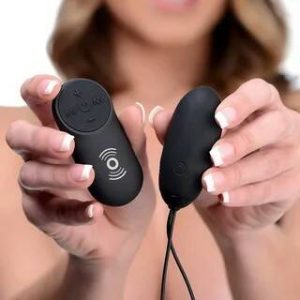When it comes to the volume of vibrators, it’s important to note that individual experiences and perceptions of noise can vary. However, here are some general categories of vibrators based on volume:
- Whisper Quiet or Silent Vibrators: These vibrators are specifically designed to operate at a low volume, aiming to provide a discreet and quiet experience. They often have noise-reducing features or use quieter motors.
- Quiet or Low-Volume Vibrators: These vibrators produce a modest amount of noise, but still aim to be relatively discreet. They may have sound-dampening features or operate at a lower intensity to minimize noise.
- Standard Volume Vibrators: These are the most common types of vibrators and produce a moderate level of noise during operation. They may emit a noticeable humming sound, especially at higher vibration intensities.
- Powerful or High-Intensity Vibrators: Vibrators in this category tend to have stronger motors and produce more vibration power. As a result, they may generate a bit more noise compared to lower-intensity vibrators. However, advancements in motor technology have made it possible to find powerful vibrators with reduced noise levels.
It’s important to consider that individual sensitivity to noise can vary, and what may be considered quiet or loud for one person may not be the same for another. If noise is a concern for you, look for vibrators specifically marketed as “whisper quiet” or “silent” to increase your chances of finding a vibrator with lower volume. Reading product reviews and descriptions can also provide insights into the noise level of specific models.
Additionally, factors such as the environment in which the vibrator is used, distance from the source of the sound, and the presence of background noise can all influence how noticeable the vibrator’s volume is.
Factors that can affect the noise level of a vibrator
The noise level of vibrators can vary depending on the specific model and its features. Some vibrators are designed to be discreet and operate with relatively low noise levels, while others may produce more noticeable sounds.
Factors that can affect the noise level of a vibrator include:
1. Motor Quality: Higher-quality motors tend to be quieter and produce less noise compared to lower-quality or less powerful motors.
2. Vibration Intensity: Vibrators with higher vibration intensities may produce more noise compared to those with lower intensities. Higher settings often require more power and can result in increased noise levels.
3. Design and Materials: The overall design and construction of the vibrator can also influence noise levels. Vibrators made from softer or more flexible materials, such as silicone, tend to be quieter compared to those made from harder materials like plastic.
To minimize noise, you can consider the following:
1. Choose a High-Quality Vibrator: Investing in a vibrator from a reputable brand known for producing quiet and well-engineered products can help ensure a quieter experience.
2. Look for “Whisper Quiet” or “Silent” Features: Some vibrators are specifically marketed as being whisper quiet or silent. These models are often designed with noise reduction features to minimize sound.
3. Use a Thick Blanket or Pillow: Placing a thick blanket or pillow between you and the vibrator can help muffle the sound.
4. Use in a Private Environment: If you’re concerned about noise, you can use the vibrator in a private setting where the noise won’t be a concern or where you can enjoy the added excitement of potential discretion.
It’s important to note that while some vibrators may emit a certain level of noise, many people find that the pleasurable sensations they provide far outweigh any potential noise concerns. If discretion is a priority for you, selecting a quieter model or exploring other types of toys, such as dildos or non-vibrating options, may be worth considering.
How can I choose a quieter vibrator?
Choosing a quieter vibrator involves considering specific features and factors that contribute to its noise level. Here are some tips to help you choose a quieter vibrator:
- Read Product Descriptions and Reviews: Look for vibrators that are explicitly marketed as “whisper quiet,” “silent,” or “low noise.” Read customer reviews to get insights into the actual noise level reported by users.
- Motor Quality: Opt for vibrators with high-quality motors. Well-engineered motors tend to produce less noise and operate more smoothly. Look for brands known for their reliable and quiet motor technology.
- Noise Reduction Features: Some vibrators are designed with noise reduction features such as extra insulation, sound-dampening materials, or innovative motor designs. Look for models that highlight these features in their product descriptions.
- Material Choice: Vibrators made from softer and more flexible materials, such as silicone, often tend to be quieter compared to those made from harder materials like plastic. So, consider opting for a vibrator with a silicone or similar soft material construction.
- Vibration Intensity Settings: Vibrators with adjustable vibration intensities allow you to customize the level of power to your preference. Lower intensity settings usually produce less noise, so having a range of intensity options can provide more control over the noise level.
- Size and Shape: Compact or smaller-sized vibrators may produce less noise due to their smaller motors. Additionally, consider models with smoother shapes and fewer moving parts, as they can contribute to quieter operation.
- Use Lubrication: Applying a small amount of water-based lubricant to the vibrator can help reduce friction and, in turn, minimize noise during use.
- Ambient Noise: Consider using the vibrator in an environment with some ambient noise, such as playing soft music or using a white noise machine. This can help mask any minimal noise produced by the vibrator.
It’s important to keep in mind that complete silence may not be achievable with all vibrators, especially those with higher intensity levels. However, by considering the factors mentioned above and prioritizing vibrators marketed as quiet or low noise, you can increase your chances of finding a vibrator that suits your desire for a quieter experience.

Are quiet vibrators as juicy as loud ones?
The sensation and level of enjoyment you experience with a vibrator https://incognito.black are subjective and can vary from person to person, regardless of the noise level. It’s important to note that the noise level of a vibrator does not necessarily correlate with its effectiveness or ability to provide pleasure.
Quiet vibrators are designed to minimize noise during use, often through the use of noise-reducing technology or quieter motors. While they may produce less audible noise, they can still deliver pleasurable and intense sensations. The focus of a quiet vibrator is to provide a discreet and more private experience, without sacrificing the quality of the vibrations.
It’s worth mentioning that some people may actually prefer quieter vibrators due to the added discretion and privacy they offer. The absence of loud noise can be beneficial for those who live with roommates, have thin walls, or value maintaining a quiet environment during intimate moments.
Ultimately, the “juiciness” or level of pleasure you experience with a vibrator depends on personal preferences, the quality of the vibrator itself, and how well it aligns with your desires and stimulation preferences. It’s a good idea to read product reviews, consider the features and functionality of the vibrator, and choose one that suits your needs and desired sensations, regardless of its noise level.
What are the safest materials a silent vibrator should be made of, and which should be avoided?
When it comes to choosing a safe and silent vibrator, it’s important to consider the materials used in its construction. Here are some safe materials commonly found in high-quality vibrators:
- Medical-Grade Silicone: Silicone is a popular choice for vibrators due to its soft, smooth texture, body-safe properties, and ease of cleaning. Look for vibrators made from medical-grade silicone, which is non-porous, hypoallergenic, and free from harmful chemicals like phthalates.
- ABS Plastic: ABS (Acrylonitrile Butadiene Styrene) is a durable and body-safe plastic often used in vibrators. It is non-porous, easy to clean, and generally safe for use on the body. Ensure that the ABS plastic used is free from harmful additives.
- Stainless Steel: Some luxury vibrators feature stainless steel construction. Stainless steel is non-porous, body-safe, and can provide unique sensations. It’s important to ensure that the stainless steel used is of high quality and suitable for intimate use.
Avoid materials that may pose health risks or have lower safety standards, such as:
- Jelly or Rubber: Vibrators made from jelly or rubber materials should be avoided as they are often porous, making them difficult to clean and more likely to harbor bacteria. They may also contain phthalates, which are potentially harmful chemicals.
- PVC or Vinyl: Similar to jelly or rubber, PVC (Polyvinyl Chloride) or vinyl materials can be porous and potentially contain phthalates. It’s best to avoid vibrators made from these materials.
- TPE or TPR: Thermoplastic elastomers (TPE) and thermoplastic rubber (TPR) are flexible materials used in some vibrators. While they are generally body-safe, they can be porous and require thorough cleaning to maintain hygiene.
By choosing vibrators made from high-quality, body-safe materials like medical-grade silicone, ABS plastic, or stainless steel, you can prioritize both safety and silence. Be sure to read product descriptions and labels to ensure the materials used are explicitly stated as body-safe, non-toxic, and free from harmful chemicals.
